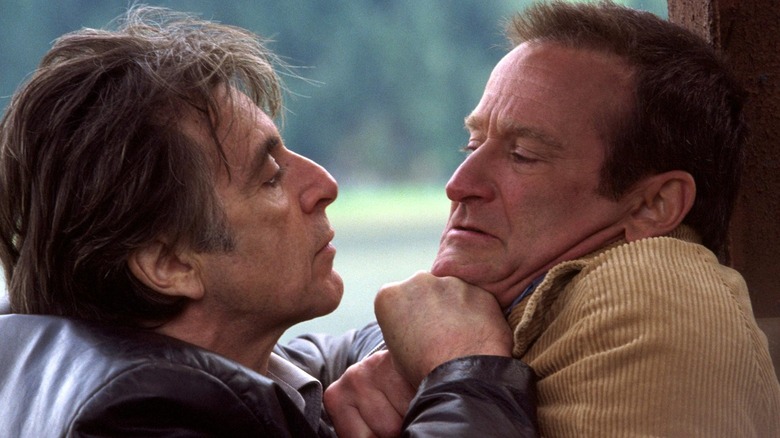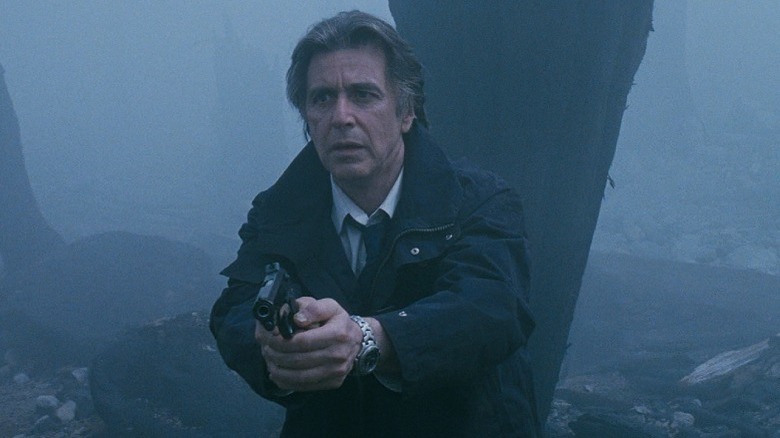How Directing Insomnia Prepared Christopher Nolan For Batman Begins
Christopher Nolan is a blockbuster auteur, a filmmaker who makes big-budget tentpoles with his own unique artistic styles and approaches. Nolan's works always gained the good will of critics and cinephiles, but he became a household Hollywood name after the success of "Batman Begins" and its sequels, collectively referred to as the "Dark Knight trilogy." The director didn't make a sudden transition from small indie projects to major studio fare, though. He first experimented with a type of production that has become increasingly rarer in today's theatrical landscape: the mid-budget studio film.
Nolan made his first feature, "Following" (1998), on a minuscule budget of $6,000 USD, a venture that the director called "extreme." Remarkably cost-efficient, the project established Nolan's penchant for film noir, nonlinear narratives, and black-and-white 16mm photography. He upped the price of his next film, "Memento" (2000), to $9 million USD, but it was still an experiment in shooting a compelling narrative with minimal resources. As a result, the indie project struggled to find a U.S. distributor due to its unorthodox plot structure. It wasn't until "Insomnia" (2002), that Nolan truly got to test the major studio waters.
Working with Warner Bros.
"Insomnia" is a bit of black sheep in Christopher Nolan's filmography. It's not reviled by any means, but it is somewhat overlooked as an awkward career transition film. A remake of a 1997 Norweigian film of the same name, it's the first and only film Nolan didn't have a hand in writing, and thus seems to lack the sort of elements that concretely define his work (though they're more subtly there, to be sure). As his first of many projects under Warner Bros., however, "Insomnia" was vital in showing Nolan how to work within the confines of a big studio, even if its modest budget of $46 million feels tiny in comparison to the $150 million of "Batman Begins."
The director talks about his financial leaps forward in a 2015 interview with Forbes:
"I really would say the best preparation I had for making a large-scale franchise movie was during a mini-scale studio film before that. That was the film 'Insomnia' [...] a huge leap up for me. The film I'd done before that was a lot smaller. 'Memento' had been filmed for about $3-4 million dollars. So getting my feet wet in the studio system and doing a medium-budget studio thriller, and taking on what to me was a lot of responsibility, that was the best possible training and the best possible middle step I could've had for then going on to a large-scale franchise movie."
"Insomnia" wouldn't be the last time Nolan would make a mid-budget studio film. Between "Batman Begins" and "The Dark Knight," he released "The Prestige" in 2006, taking a break from a major franchise to explore other ideas he could implement under the auspices of a Hollywood studio. "Insomnia" might be relatively forgotten, but it's more than just a footnote in Nolan's oeuvre. It is, in fact, an important chapter.

